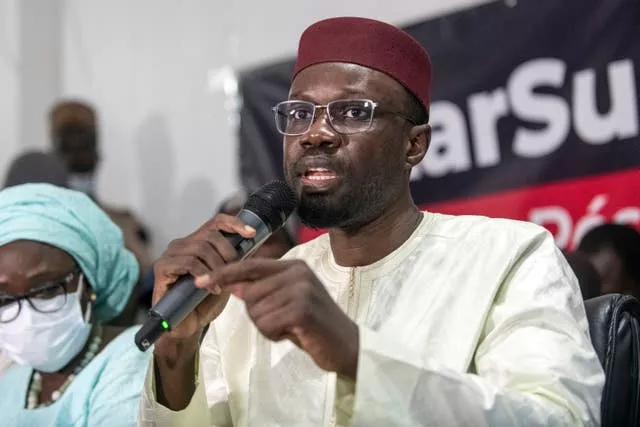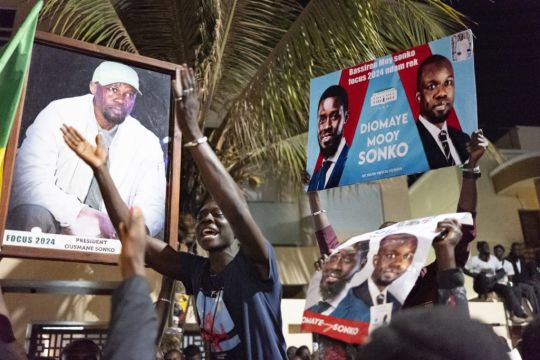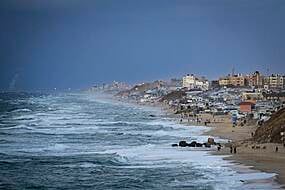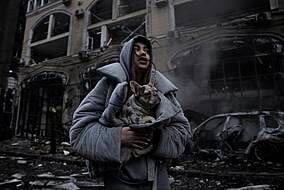Senegal’s top opposition leader Ousmane Sonko vowed on Friday to help his party win Senegal’s March 24 presidential election even though he is barred from the ballot, in his first public address since being freed from prison a day earlier.
He is widely seen as the main challenger to President Macky Sall’s ruling party.
As he left the prison complex on Thursday night, Mr Sonko was greeted outside by crowds of supporters waving flags, chanting and holding up posters.
“The message will be short. The important thing is our candidate. We have an election to win. Every hour counts. We have lost a lot of time. We will be on the ground for the victory of our candidate,” Mr Sonko said at a news conference.
In his brief message, Mr Sonko restated some of the key tenets of his campaign: the need to fight corruption in the government and to protect Senegal’s economy from the influence of foreign powers.
Mr Sonko had been in prison since July and has fought a prolonged legal battle to run for president in the election on March 24. Mr Sonko and his key ally, Bassirou Diomaye Faye, were both set free, his lawyer Bamba Cisse told the Associated Press.
It was not immediately clear how their release would impact the election. Mr Faye was named the opposition’s election candidate after Mr Sonko was barred from running.

Supporters also gathered at Mr Sonko’s house and at other locations in the capital, Dakar, to celebrate. Convoys of supporters drove around the city tooting their horns and yelling until late at night.
Mr Sonko, who finished third in the 2019 presidential election, is popular among young people and his fiery campaign to tackle corruption has resonated in a country with economic hardship. The war in Ukraine has pushed up food and energy prices, further straining the economy.
Mr Sall himself ultimately decided not to seek a third term in office after Mr Sonko’s supporters launched months of protests that at times turned deadly. The protests have rocked Senegal’s image as a pillar of stability in West Africa, where dozens of coups and attempted coups have taken place in recent decades.
Mr Sonko’s presidential bid has faced a prolonged legal battle that started when he was accused of rape in 2021. He was acquitted of the rape charges but was convicted of corrupting youth and sentenced to two years in prison last summer, which ignited deadly protests across the country.
In January, he was disqualified from the ballot because he faces a six-month suspended sentence following his conviction for defamation, Senegal’s highest election authority, the Constitutional Council, said at the time.

Mr Sonko’s supporters maintain his legal troubles are part of a government effort to derail his candidacy. His release follows Mr Sall’s decree to exonerate political prisoners, including hundreds that were arrested in the violent protests last year.
Presidential candidates kicked off their election campaigns last Saturday, following weeks of violent protests after the vote was delayed.
Mr Sall tried to postpone the election last month, just weeks before it was to take place on February 25.
His announcement that the vote would instead be held 10 months from now plunged Senegal into uncertainty and drew protesters to the streets again.
But the Constitutional Council, rejected Mr Sall’s postponement and ordered the government to set a new date as soon as possible.







